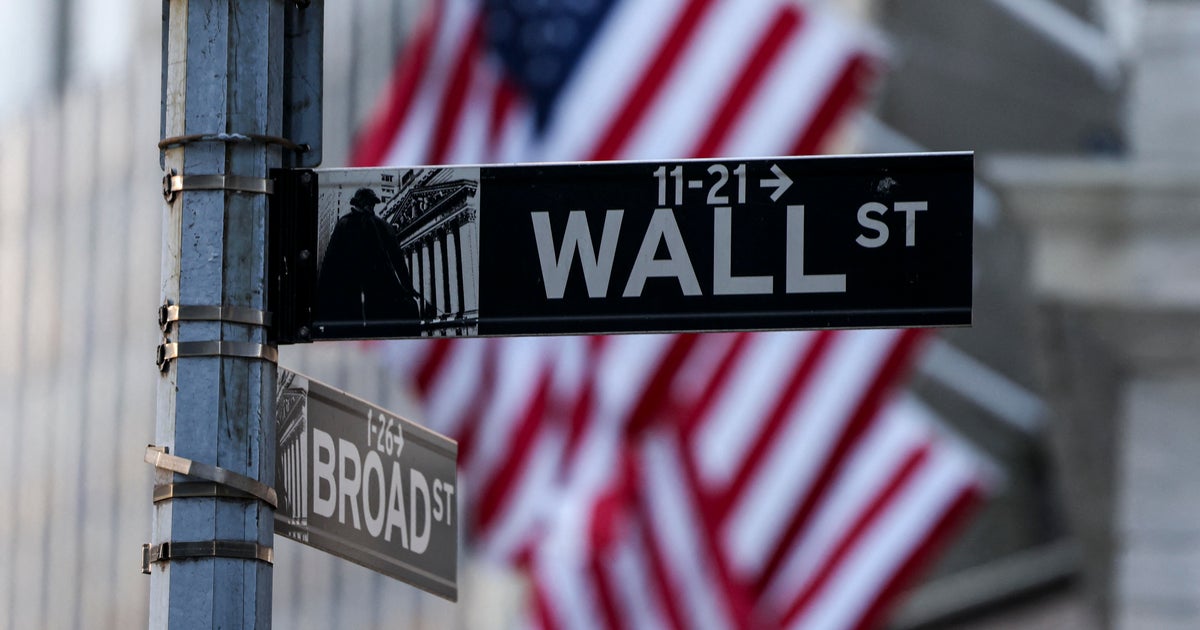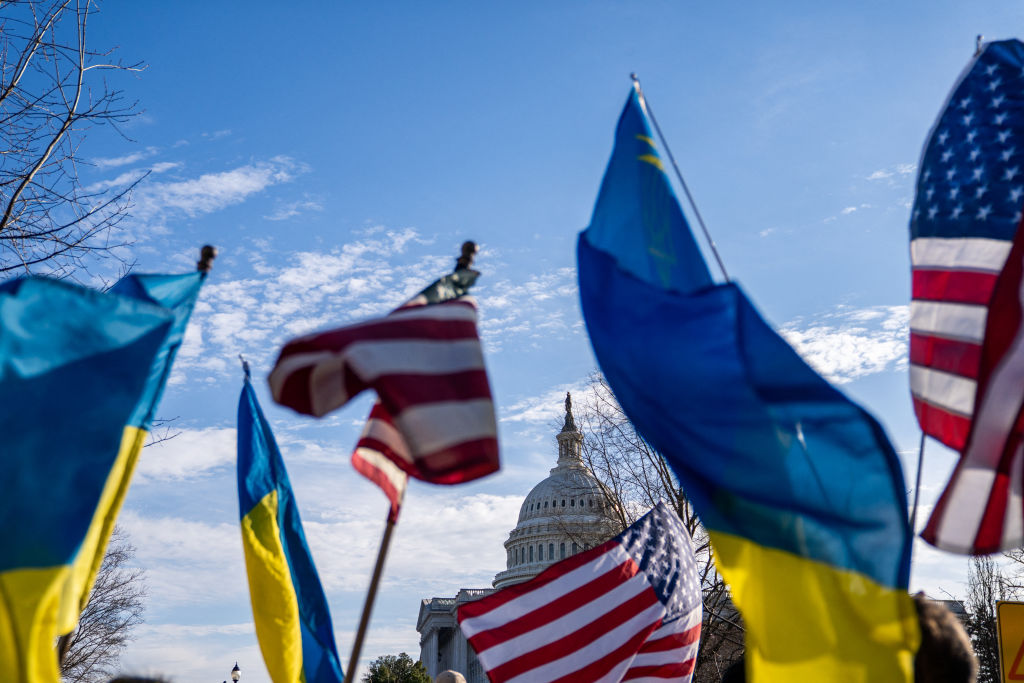Stocks lose gains as investor mood sours amid ongoing tensions in Ukraine
Stocks fell in afternoon trading on Wall Street Wednesday, extending its slump as the crisis in Ukraine remains tense.
The S&P 500 fell 79 points, or 1.8%, to close at 4,225, deepening its "correction," or a loss of 10% from its recent peak. The Dow Jones Industrial Average fell 1.4%, and the Nasdaq Composite dropped 2.6%.
Technology stocks led the broad losses. The sector is full of companies with pricey stock values that tend to hold more weight in swaying the market up or down.
U.S. crude oil prices remained volatile, though energy stocks gained ground. Bond yields edged higher, a sign investors are piling in less risky assets. The yield on the 10-year Treasury rose to 1.98% from 1.95% late Tuesday.
"Moment of peril"
The United Nations General Assembly gathered Wednesday for a session dedicated to discussion of the crisis unfolding on Ukraine's borders. U.N. Secretary-General Antonio Guterres — who cut short a planned international trip to speak at the General Assembly on Wednesday — told the assembly in his opening remarks that the world was "facing a moment of peril."
With violence escalating in the eastern part of Ukraine, the nation's government called up military reservists and on Wednesday, the National Security Council met in Kyiv and asked lawmakers to approve a national state of emergency, which would give authorities more powers to "strengthen security of public places and locations that are critical for the public," Oleksiy Danilov, Ukraine's national security chief, said.
Russian leader Vladimir Putin unilaterally recognized the breakaway regions of Donbas, Luhansk and Donetsk, as independent of Ukraine on Tuesday, and ordered his forces to enter the areas for "peacekeeping" duties — a choice of phrase Guterres called a "perversion of the concept of peacekeeping."
The U.S. and western nations have responded with sanctions and Germany withdrew a document needed for certification of the Nord Stream 2 gas pipeline from Russia. The tensions have made energy prices volatile as any conflict between Russia and Ukraine disrupt supplies. President Biden on Wednesday announced his administration is imposing sanctions on Nord Stream 2 AG — the company behind the Nord Stream 2 gas pipeline, now halted, and its corporate officers.
The potential for a war in eastern Europe has only added to the concerns investors had about the global economy. Stocks have been slipping in 2022 as investors gauge how rising inflation will impact economic growth and whether the Federal Reserve's plan to raise interest rates this year will cool inflation.
Wall Street is also still reviewing how companies are dealing with supply chain problems and higher costs in their latest round of corporate report cards.
Lowe's rose 3.1% after raising its profit forecast for the year following a strong fourth-quarter financial report. Security software maker Palo Alto Networks rose 3.5% after raising its profit forecast on strong demand for cybersecurity.
TJX, the parent of T.J. Maxx and Marshalls, fell 1.2% after reporting disappointing fourth-quarter financial results.
Eyes on additional sanctions
Although many Americans may prefer that the U.S. stay out of the conflict between Russia and Ukraine, the brewing violence and political fallout are already hurting their wallets. Gasoline prices, which have hit eight-year highs on the uncertainty, could surge even further if the hostilities escalate or if U.S. lawmakers pass another round of sanctions.
"Our sense is that this saga is far from over and most of our contacts expect both additional sanctions in the days ahead as well as a targeted legislative package," Isaac Boltansky, managing director and director of policy research at BTIG, wrote in a February 23 report.
"If Russian attacks escalate as expected, we should expect swift action that could include the United States expanding the scope of its sanctions to other Russian banks and an effort to impose export controls. The export control effort could prove both more impactful and more complicated," Boltansky said.
On Tuesday, the S&P 500 lost 1%. That put it 10.3% below its January 3 all-time high and into a correction, or a decline of at least 10% but less than 20%. The Dow lost 1.4% and the Nasdaq composite sank 1.2%.
Wheat prices rose on concern about supplies from Russia and Ukraine being disrupted. Prices of nickel and aluminum, for which Russia is a major supplier, also rose.
Return of Iran nuclear deal?
In energy markets, benchmark U.S. crude fell 86 cents to $91.49 per barrel in electronic trading on the New York Mercantile Exchange. The contract rose $1.28 on Tuesday to $92.35.
Russia is a major energy producer and the tensions over Ukraine have brought wide swings in volatile energy prices — on top of the inevitable risks of a broader conflict which would pull down economic activity across Europe and globally.
The White House is considering another release from the Strategic Petroleum Reserve, the Washington Post reported Tuesday, and U.S. officials are planning to divert more natural gas to Europe.
There is also an expectation by some that the current crisis in Ukraine could provide an opportunity to resurrect the U.S.-Iran nuclear deal.
"There is a belief among our contacts that ongoing Russian tensions could prove to be a tailwind for the effort to restart the Iranian nuclear pact, thereby allowing Iran to return to international oil markets after three years," Boltansky said.
The 2015 accord limiting Iran's nuclear program in return for relief from U.S. and international sanctions, ended after then President Trump pulled the U.S. out of the deal in 2018.



